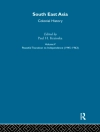
Different from literary works (prose, drama etc.) with techniques like montage and contemporary media (film, documentaries, video games, internet) where time-lines are being questioned through flashbacks and flashwords, historiography seems to have resisted such challenges. Most historiographical works (biographies, scholarly studies) still adhere to chronological narratives, even though the boundaries between history and literary fiction have been blurred over the past decades. Responding to 20th/21st c. attempts like Walter Benjamin’s prophetic historian, this volume asks: How to write history without following the chronologically oriented trajectory of time? The interdisciplinary contributions from a broad range of history (medieval, modern, music, sciences), sociology, life sciences, genocide research go back to a symposium that responded to a publication of Markus Vinzent (Writing the History of Early Christianity. From Reception to Retrospection of 2019, Cambridge University Press). The scholars engage with the idea of retrospection as a method of critical historiography. Writing retrospectively is not simply a matter of presentism, reversing chronology, it disrupts continuities and teleologies and opens creative futures.











